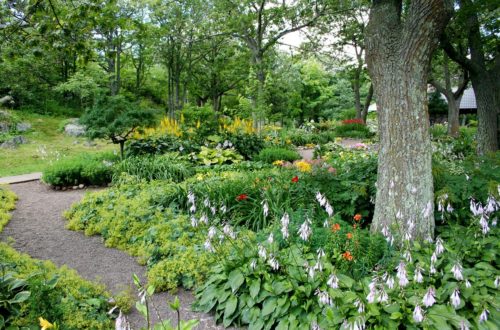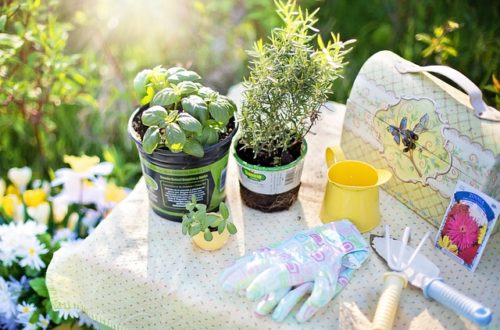A Solution for Improving Garden Soil & Saving the Planet
Are you seeking a way to keep your garden plants healthy without harming the environment? Conventional fertilizers aren’t going to cut it, as they pollute the planet and don’t provide long-term benefits. A better option is to create fertilizer at home with worms by setting up a personal vermicompost that turns your wasted food scraps in plant energy.
Why is homemade worm compost so beneficial? It adds essential nutrients back into the soil, plus worms have the potential to make it easier to reduce your household trash. And, as you’ll learn next, that’s no small matter.
Compost: Reducing Waste One Bin at a Time
The United States has a food waste problem, and little is being done to keep it under control. The EPA reports that approximately 133 billion pounds of food are wasted each year, which comes to almost a third of the national food supply. Even worse, the vast majority of this household waste winds up in landfills, where it slowly decomposes and produces methane- a potent greenhouse gas that contributes to global warming. Some studies suggest that close to 20 percent of U.S. methane emissions come from landfills- meaning that those wasted food scraps are far from harmless.
Are you wondering how to reduce waste? Here’s the good news. It’s possible to divert almost all your food waste from being thrown away by composting it instead. Not only will this reduce greenhouse gas emissions, but the process also provides you with a premium garden amendment that makes growing food and flowers easier than ever. This “black gold” is an invaluable resource for improving the planet and your personal sustainability. It’s easier to make than you expect, so long as you allow special creatures to help you out- worms.
What is Worm Composting?
As the name implies, worm composting (also called vermiculture or vermicomposting) is a proven method for making compost by feeding food waste to worms. When you maintain your own worm bin, you can turn your household’s fruit and vegetable scraps, coffee grounds, torn up paper and cardboard, broken eggshells, and more into worm castings, a potent plant fertilizer that produces impressive results. This makes it a stellar strategy for reducing waste in your household.
In most cases, it’s best to use a bin specially designed for red wigglers (Eisenia fetida), a worm species with a voracious appetite that can eat more than half its body weight each day. After a few weeks of maintaining a worm bin, you’ll start to notice a layer of small black pellets along the bottom. These are the castings (worm feces), and they are gold for your garden AND the environment.
Why Worms?
There are plenty of ways to make compost at home, so why are worms considered the gold standard? Vermicompost is one of the best things that can happen to food scraps. Why is it worth investing in worm compost for your plants? These benefits are just the beginning.
- Produces a fertilizer made from organic materials, not synthetic chemicals
- Breaks down damaging organisms like fungus and bacteria, so your plants stay safe
- Improves nutrient absorption for plant roots
- Filled with water-soluble nutrients
- Increases the soil’s capacity to retain water
- Produces a stronger soil web that creates habitat for other species
- Castings are five times richer in nitrogen, ten times more potassium, seven times more phosphate, and three times as much magnesium as standard soil
- Flush with enzymes and beneficial microbes
- Contains a neutral pH of 7.0 to reduce soil acidity
- Improves germination and seedling growth
- Can remove heavy toxins from the ground
- Improves plant tolerance against disease
Comparing Vermiculture to Other Composting Methods
Why does worm compost stand out from other conventional methods? Let’s compare the functionality of two different ways of composting to see why worms come out ahead.
TRADITIONAL COMPOST:
A standard way to break down food scraps is to add them to an outdoor compost bin. Though popular, this method is far from foolproof. Without the right ratio of green and brown material, your pile might not break down. Even worse, it may start to rot instead in a decidedly smelly process.
BOKASHI COMPOST:
This distinctly Asian form of compost pickles your food scraps through an anaerobic process to produce a quality fertilizer. While relying on fermentation means that you can compost meat and dairy scraps, bokashi compost needs to be buried underground for several weeks before you can use it for your plants.
WORM COMPOST:
This form of fertilizer, in contrast, is a speedy, odor-free way to make a high-quality soil amendment. Once you get your system established, it takes surprisingly little effort to manage a worm bin, and you’ll soon be able to harvest castings at regular intervals.
Turn to Vermicompost for Your Soil Quality Needs
If you’re ready to take the next step towards improving the planet and the health of your garden, it’s time to consider setting up your own worm bin. The process takes minutes, and you’ll reap the benefits of quality compost for as long as you maintain it. Get started today! Your garden will thank you.
Maro Boye is the Content Marketing Manager for The Squirm Firm in Ithaca New York. For more info: https://thesquirmfirm.com/






